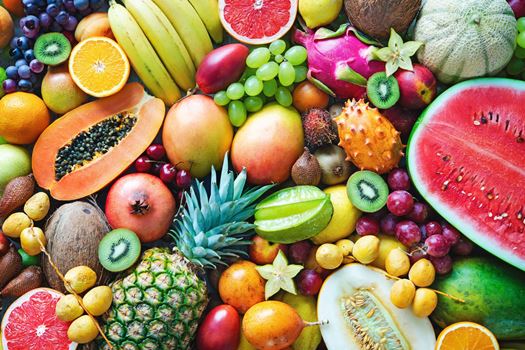96% Nepalis don’t have enough intake of fruits, vegetables

By Nayak Paudel
Morang, May 12: An unhealthy diet is one of the main factors causing non-communicable diseases. In Nepal, 96.7 per cent of adults have an unhealthy diet due to insufficient intake of fruits and vegetables.
According to the ‘Non-communicable Disease Risk Factor: STEPS Survey Nepal 2019’, a study report of Nepal Health Research Council, 96.3 per cent women and 97 per cent men have insufficient intake of fruits and vegetables.
The report revealed the average servings of fruits and vegetables consumed per day was 2.0 (0.5 servings of fruits and 1.5 servings of vegetables).
The World Health Organisation (WHO) recommends 5 servings i.e. 400 grams of fruits and vegetables as a part of healthy balanced diet.
According to experts, sufficient intake of fruits and vegetables provides a rich mix of nutrients such as vitamins and minerals alongside bioactive substances which prevents an individual from diet-related non-communicable diseases.
“The lack of fruits and vegetables leads to deficiency of necessary nutrients in an individual’s body. The deficiency results in malnutrition and different non-communicable diseases,” said Dr Praniti Singh, Clinical and Bariatric Dietician at Norvic International Hospital.
Various non-communicable diseases caused due to unhealthy diet are diabetes, heart disease, stroke and cancer.
Along with a vast majority of individuals having insufficient intake of fruits and vegetables in Nepal, a large number of them also do not know about the required quantity of fruits and vegetables intake.
The survey by NHRC shows that only 10.1 per cent of adults knew about the correct servings of fruits and vegetables intake per day.
The government of Nepal had formed a Multi-Sector Nutrition Plan (2013-2017), led by the National Planning Commission, to address complex causes of malnutrition. As per the government, the plan helped improve maternal, infant and young child feeding. It also increased maternal, infant and young child micro-nutrient status and improved management of malnutrition in children.
Citing remarkable progress in the field of nutrition through the plan, a cabinet meeting on November 19, 2017 approved Multi-Sector Nutrition Plan-II (2018-2022) to further improve the nutrition sector of the country.
“There are volunteers mobilised across the country with the help of some organisations assisting us alongside local levels to increase awareness regarding healthy diet. We, however, accept it is going slow but is continuing,” said Usha Jha, a member of the National Planning Commission.
According to Jha, they have directed the schools providing daily meal to students to include proper quantity of fruits and vegetables. The WHO’s facts show 1.9 billion adults are overweight or obese while 462 million are underweight. Similarly, 47 million children under five years of age are wasted, 14.3 million are severely wasted, 144 million are stunted and 38.3 million are overweight or obese.
Under-nutrition is the cause of 45 per cent of deaths among children under five years of age. Low- and middle-income countries share most of the deaths due to nutrition deficiency.
“We have also generated awareness among the public to prioritise locally produced vegetables,” added Jha.
Dieticians also urge people to prioritise seasonal fruits and vegetables because they are fresh and provide proper quantity of nutrients.
However, the dieticians also argue that the government should ensure availability and affordability of fruits and vegetables alongside generating awareness. “In places such as Manang and Mustang people store dried vegetables and fruits because of lack of freshly grown vegetables and fruits throughout the year. On the other hand, there are many people who cannot afford the available fruits and vegetables and people who can afford lack an access. The government should be concerned about this issue as well,” said Singh.
NHRC’s report also shows that less-educated and those with less wealth were mostly unaware of the required intake of fruits and vegetables.
“Once a child begins eating food from six months, s/he should be provided required amount of nutrients through fresh fruits and vegetables for their good health. The intake of nutritious food should continue until the old age to ensure sound health,” Singh added.
Recent News

Do not make expressions casting dout on election: EC
14 Apr, 2022
CM Bhatta says may New Year 2079 BS inspire positive thinking
14 Apr, 2022
Three new cases, 44 recoveries in 24 hours
14 Apr, 2022
689 climbers of 84 teams so far acquire permits for climbing various peaks this spring season
14 Apr, 2022
How the rising cost of living crisis is impacting Nepal
14 Apr, 2022
US military confirms an interstellar meteor collided with Earth
14 Apr, 2022
Valneva Covid vaccine approved for use in UK
14 Apr, 2022
Chair Prachanda highlights need of unity among Maoist, Communist forces
14 Apr, 2022
Ranbir Kapoor and Alia Bhatt: Bollywood toasts star couple on wedding
14 Apr, 2022
President Bhandari confers decorations (Photo Feature)
14 Apr, 2022











